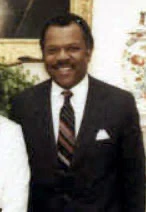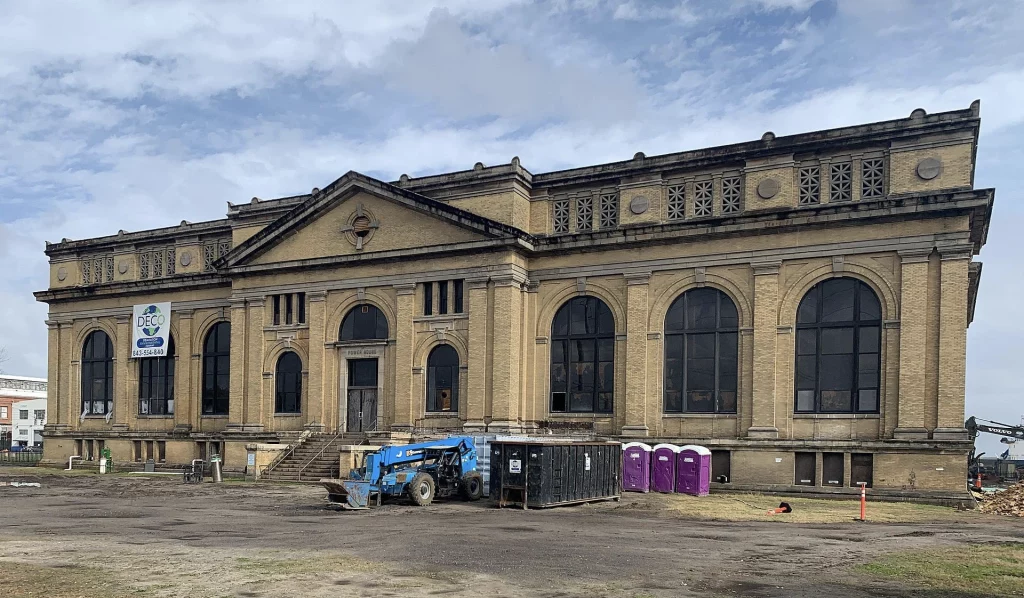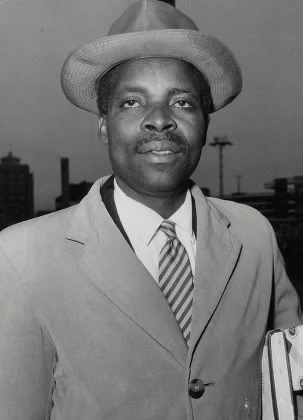Growing up in segregated Washington DC inspired John A. Burroughs to a life-long commitment to equal opportunity. He went on to serve as Ambassador to Malawi and Uganda, and to head up equal employment efforts at the Department of the Navy. Burroughs worked alongside big names such as Secretary of Defense Robert McNamara and Admiral Elmo Zumwalt — and Malawi’s tough but decidedly odd dictator, Hastings Banda. He also served as a special envoy to Sudan before that nation was partitioned into two countries. Burroughs majored in political science at the University of Iowa, which he attended on a football scholarship. After graduating in 1959, Burroughs was drafted by the Philadelphia Eagles and had a brief season with them before heading back home to Washington and a career in government. In addition to distinguished service as a U.S. ambassador and at the Department of the Navy, Burroughs was the State Department’s first African-American passport examiner. He also served as our Special Envoy to Sudan. Late in his career, Ambassador Burroughs served as Diplomat in Residence at Lincoln University. After retirement, Burroughs continued speaking on college campuses, serving on boards and other committees of the United Negro College Fund, the International Fellows Program, and the Woodrow Wilson Fellowship program.
Read Ambassador Burrough’s full oral history HERE.
Drafted by Diana Castillo
ADST relies on the generous support of our members and readers like you. Please support our efforts to continue capturing, preserving, and sharing the experiences of America’s diplomats.
Excerpts:
McNamara and Zumwalt: “These guys were doing what was right” on housing discrimination.
Discrimination = No Housing, No School
“There are three big apartment houses across the street from the Pentagon…I think about sixty or seventy percent were occupied by military personnel. We [The Department of the Navy] got these complaints that they were discriminating against blacks and other minorities, mainly service people that work at the Pentagon …This was over a long period of time. Get all this information. This stuff goes to McNamara, who is Secretary of Defense at the time…McNamara holds a press conference and he says something like: the RiverHouse Apartments are in Arlington County, Virginia.

As Secretary of Defense I had no control over Arlington County, Virginia. But I do have control of the military personnel. With “prima facie” evidence that they discriminate against black military personnel of whatever service if this continues I will place the RiverHouse off limits to United States military personnel. Problem solved. Solved. That took balls!”
Zumwalt, same thing down at Charleston Naval Shipyard. [With] the advent of desegregation, buses were coming in the Charleston Naval Shipyard to pick up kids to take them to private, religious, segregated schools…Zumwalt, again said I cannot control the schools but I damn sure can control the shipyard. I will prohibit those buses from coming into the shipyard to pick these kids up. Problem solved.”
Hastings Banda’s Malawi: “Things worked there, despite the fact you had what we described as a benevolent dictator.”

A “Benevolent” Dictator
“One interesting situation occurred while I was there. There was a socialist dissident group headed by Orton Chirwa and he was duped into returning to Malawi allegedly by Malawi’s equivalent to the Secret Service. They captured him and tried him and he was sentenced by some tribal chiefs to be hung.
That brought international attention to the point that the Vatican even entered into the fray stating that this man should not be hung and that he was not afforded due process…One of the reasons why it made national attention was Chirwa had a daughter here [in the US] who was a nurse at the Columbia Hospital for Women in Washington and she made a lot of noise here in the DC area and that is why it garnered so much international attention…And I was given the assignment of going to tell the President that Orton Chirwa should not be hung and that he should have due process. Which I did.” [Note: Chirwa had been Malawi’s Minister of Justice and Attorney General. Chirwa remained in prison and on death row for nearly eleven years before dying there in 1992.]
“I was not prepared for the kinds of things that I saw in Sudan.”
Human Tragedy in Southern Sudan
“I got a chance to go to the Southern part of Sudan with daily flights to drop off relief supplies. The plane landed in Lokichoggio, Kenya. In going into the Southern part of Sudan I saw first hand some of the bombing that the Sudanese Government had done to the air-strips where the planes were landing. And I saw the results of the proselytizing that the Sudanese Government was doing and saw the impact on the Southern part of the Sudan and the people. And despite the fact that I spent eleven or twelve years in Africa it was one of the worst human tragedies that I had seen. I had seen some horrific things in South Africa but I was not prepared for the kinds of things that I saw in the Southern part of the Sudan.”

